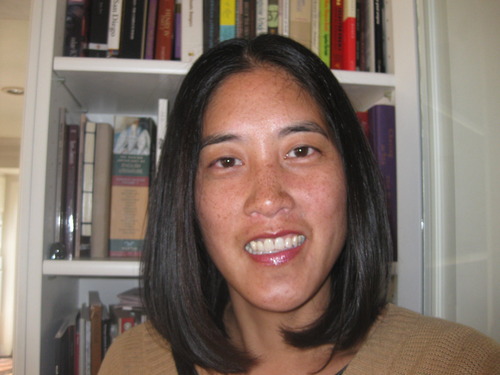
In this series Colin Winnette asks writers he admires to recommend a book. He reads it. Then they talk about it.
For this installment, Victoria Chang recommended Joe Wenderoth’s If I Don’t Breathe, How Do I Sleep and Rachel Zucker’s The Pedestrians.
Victoria Chang’s third book of poems, The Boss, was published by McSweeney’s in 2013 as part of the McSweeney’s Poetry Series. Her second book, Salvinia Molesta, was published by the University of Georgia Press as part of the VQR Poetry Series in 2008. Her first book, Circle, won the Crab Orchard Review Open Competition Award and was published by Southern Illinois University Press in 2005. She also edited an anthology, Asian American Poetry: The Next Generation, published by the University of Illinois Press in 2004. Her poems have appeared in Kenyon Review, American Poetry Review, POETRY, the Believer, New England Review, VQR, The Nation, New Republic, The Washington Post, Best American Poetry, and elsewhere. She lives in Southern California with her family and her wiener dog, Mustard, and works in business.
—Colin Winnette
COLIN WINNETTE: Victoria! You’re going against the grain here. You’ve recommended two books. And, since they’re new books, it’s safe-ish to guess you hadn’t read them when you recommended them. What motivated this recommendation? Are you messing with me?
VICTORIA CHANG: I can’t help but go against the grain, I suppose it is in my fabric to be a rule-breaker. And yes, I thought I would make you do some work and read them along with me. Plus don’t you think it’s more fun this way? We have no idea what we are going to say or if we will even like these books!
CW: I do think it’s fun this way. It created an odd tension between the two books I don’t think would otherwise have been there. Do you often read multiple new books at once? Do things get mixed up?
VC: I am always reading, always, and tons of things at once. I wouldn’t say I’m a voracious reader, though. I never finish books that fast, because I’m always reading so many things at once. I dip in, dip out, dip back in, sometimes never dip back in… I think my brain is full of collisions and that’s how I like to read and process information. I’m always comparing things and I think I do that subconsciously when I’m reading books of poetry.
CW: These are both Wave Books. What’s your relationship to Wave? Are they one of your go-to presses? Or are Wenderoth and Zucker go-to poets?
VC: Beyond submitting to Wave Books once (and...
You have reached your article limit
Sign up for a digital subscription and continue reading all new issues, plus our entire archives, for just $1.50/month.
Already a subscriber? Sign in




